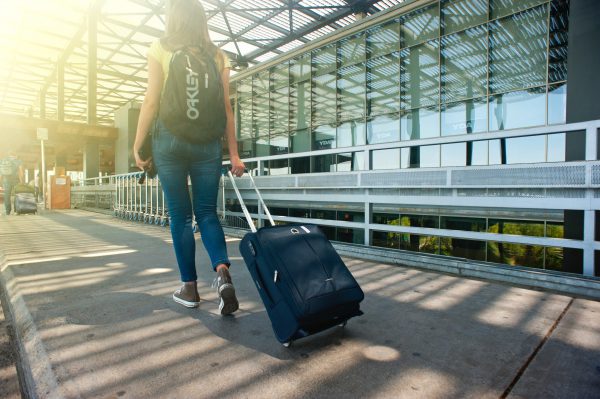CHIANG RAI, 10 May 2021: We are all longing for the day when AirAsia’s popular 2001 tagline “Now everyone can fly”, once more inspires us to book travel at prices we can all afford.
For now, it’s the stuff of dreams. Cheap airline travel deals are not on the radar and not likely to appear for the remainder of the year. The so-called new normal sees airlines in Asia reduced to flying weekly token services to destinations mostly to clear a backdrop of stranded passengers seeking to return home or serving “essential travel needs.”

When experts chatter at webinars, usually starting with an enthusiastic “I’ve seen the light”, they rarely point out that airline schedules remain in the dark. You can dream of returning to your favourite beach destination in Asia but finding an airline to fly you there at a fare comparable with 2019 levels is a big ask. Then there are other fee deterrents once you decide to give airline travel a whirl.
The International Air Transport Association (IATA) revealed last week that it fears the cost of Covid-19 tests will become as expensive as the airfare, particularly on short to medium-haul routes.
We are quickly returning to the past era when travel becomes the privilege of wealth. Trip costs skyrocket when you have to pay for a 14-day quarantine, PCR tests and Covid-19 specific insurance. For most of us, there is just one option; stay home and stay safe.
Options are limited for travel companies seeking ways to survive, so no surprises when a few desperate agents try to exploit the vaccine rollout.
Over the last six months, a rash of irresponsible travel companies around Asia (predominantly India and Thailand) posted on Facebook and websites so-called vaccine tours. They take the wealthy on junkets to unlikely spots such as Serbia on the promise they will get a Covid-19 jab. It gained media attention in Thailand, where only 1.6 million of the 60 million adult population have been vaccinated and the wealthy do what comes naturally; they flash cash and jump the queue.
One travel firm in Thailand, well respected and popular with Thai travellers, posted vaccine tours to Serbia for THB200,000. It scheduled a single departure in May, but enthusiastic travel writers suggested the campaign would muster around 5,000 customers by the year-end, a future that doesn’t bear the slightest scrutiny.
Vaccine tours first surfaced in Asia in India back in November 2020 and suffered the indignity of a rap on the knuckles from travel trade association leaders who called them unethical.
In Thailand, the Ministry of Tourism and Sports suggested that tour operators change the name by dropping ‘vaccine’ and replacing it with ‘health’ to avoid criticism or a frown from the willy nilly consumer protection agency.
I checked out the Serbia tour pegged at THB200,000 that offers a full-board trip covering 14 days, with the tour highlight suggesting you would get two jabs interspersed with the usually trot around Serbia’s tourist traps.
But read the itinerary details carefully before hitting the payment button. The company clearly states it is not offering any guarantees that the vaccine centre will deliver the jabs.
The US, UK, the Maldives and Russia are possible targets for vaccine tourism out of Asia. “High-society” rich are ready to deploy their abundant financial resources to travel whatever the cost to obtain a Covid-19 injection, or so travel agents believe. There are also trips advertised to Los Angeles, San Francisco and New Your although warnings have been issued that rules on eligibility vary by state.
Of course, the take-up on vaccine tours will be small and irrelevant in the long run. The objective is not to launch a successful series of outbound tour packages to keep the company afloat but to harvest contact details of wealthy potential customers for a future sales blitz when “real travel” resumes. At best, they are gimmicks to build a mailing list.
Ethical questions
But the tours do underscore a major challenge that many nations face. It’s the global inequality in vaccine procurement and distribution.
More than 80% of the jabs given worldwide have gone to high- and upper-middle-income countries, according to a study by the Our World in Data project at the University of Oxford. Just 0.2% of vaccines have gone into the arms of citizens in low-income countries.
BY definition, the travel trade media often ignores ethical questions. It’s a fun story: “Wealthy on a jolly to gain a jab, and save tourism.” Really?
Reuters filled in the ethics gap when it quoted Glenn Cohen, a professor at Harvard Law School, who specialises in health law policy, biotechnology and bioethics.
“In Europe, for a person to literally drive to another country, get a vaccine and return home or to their place of residency strikes me as unethical tourism.
“It increases the risk of the spread of Covid-19, and you may be taking a vaccine from someone who is entitled to it under that country’s law. People are putting themselves and others at risk as vaccine tourists.”







Well, some countries prefer to buy submarines and are even planning a space project ! Obviously, those governments put these costs before the vaccination and health of their citizens !